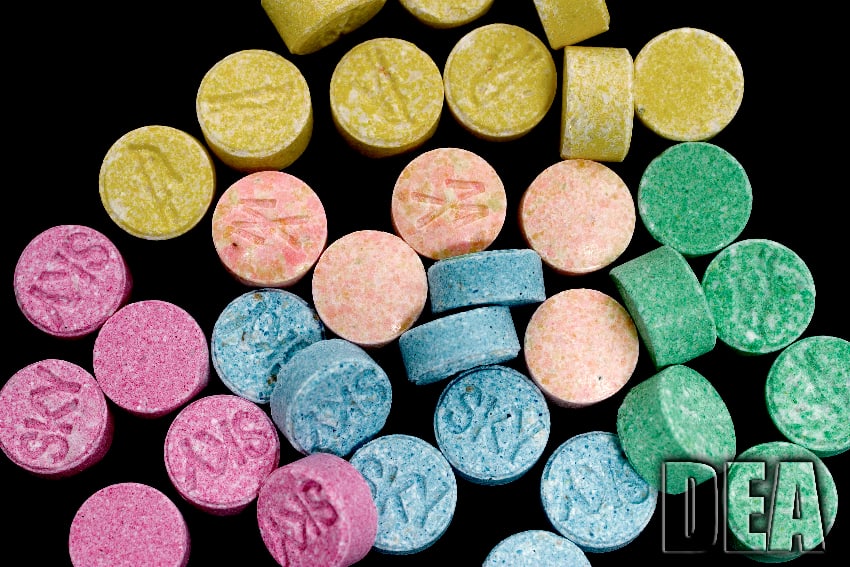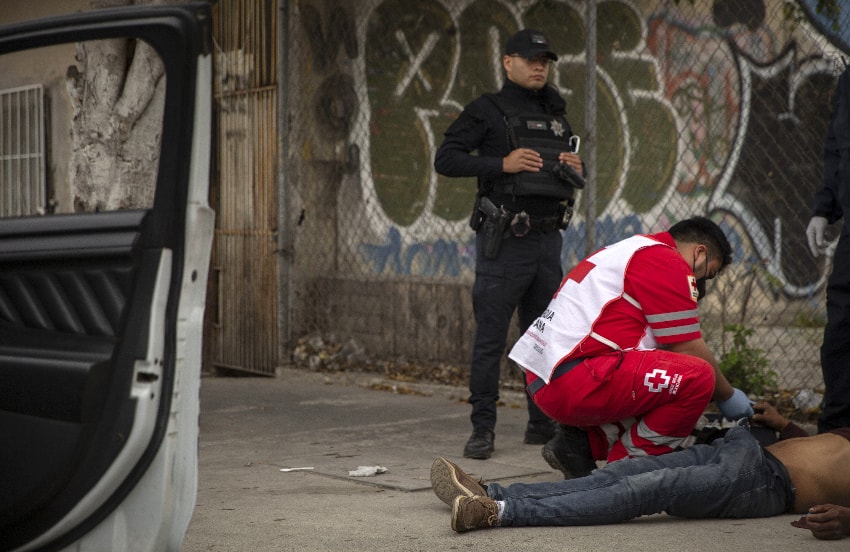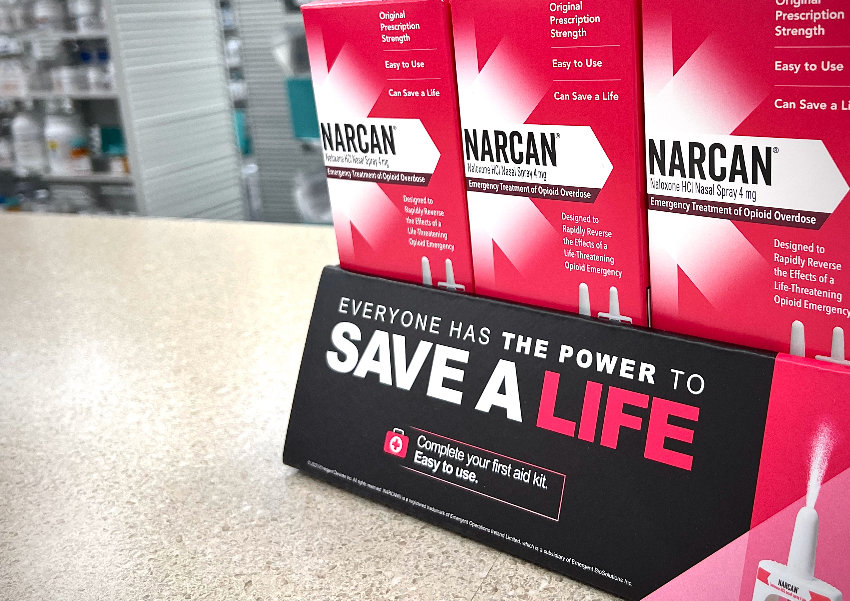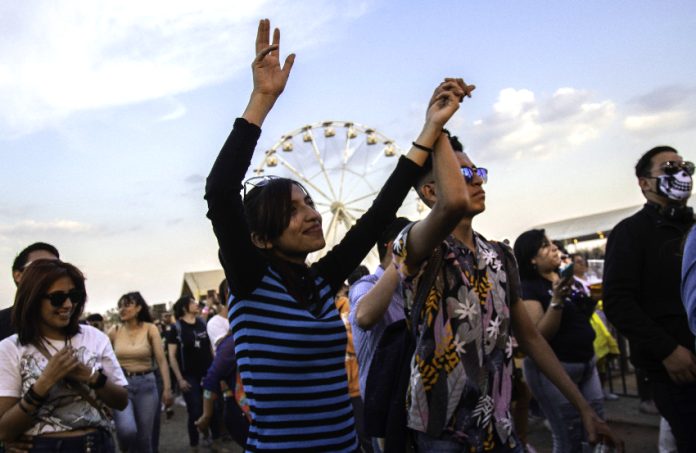The adulteration of drugs with fentanyl “is no longer a phenomenon confined to the northern border of Mexico,” the authors of a journal article concluded after a study detected the presence of the synthetic opioid in MDMA and cocaine carried by attendees at a musical festival near Mexico City.
Published in the Harm Reduction Journal this month, an article titled “First drug-checking study at an electronic festival and fentanyl detection in the central region of Mexico” notes that fentanyl was present in two out of four cocaine samples and in 14 of 22 MDMA samples tested at the 2022 event.

Forty festival attendees, all but three of whom were men, made use of a drug-checking service and consented to their participation in the study. They handed over 51 samples of drugs for testing, including MDMA (commonly known as ecstasy), LSD, cocaine, ketamine, methamphetamine and DMT.
“Most samples contained what the users expected plus adulterants,” said the five Mexico City-based authors of the article.
“Main adulterants were methylene-dioxy-ethyl-amphetamine, methylene-dioxy-propyl-amphetamine, hydroxyamphetamine, and the selective serotonin reuptake inhibitor venlafaxine. … Some of the adulterants found pose serious health risks, especially fentanyl, amphetamine-like substances, and venlafaxine,” the article said.
“Therefore, it is urgent to monitor these adulterants at electronic music festivals and to implement prevention, treatment, and harm reduction public policies.”

The article said that fentanyl and fentanyl derivatives had previously been detected “in the paraphernalia of heroin and crystal users in Tijuana,” but the synthetic opioid – which is up to 50 times stronger than heroin, according to the U.S. Centers for Disease Control and Prevention – hadn’t previously been detected in drugs in central Mexico.
The article said that the results of the drug testing at the unspecified music festival provides “evidence of fentanyl presence in a place close to Mexico City.”
“Present results show that fentanyl adulteration is no longer a phenomenon confined to the northern border of Mexico among vulnerable people who inject heroin or crystal meth, but has reached young people who use psychostimulants,” it said.
The article said that festival attendees who participated in the study “were reassured by confirming that their substance was what they were offered and bought but surprised by the presence of fentanyl and venlafaxine and uncertain of the risks associated with their consumption.”

“… Although the young people who attended the festival had a high degree of education and some information about the effects of certain drugs, they did not have sufficient knowledge of fentanyl, and neither did they intentionally seek it out,” it said, adding that their “their high normalization and low perception of risk regarding drug use, places them in a vulnerable situation particularly in the face of fentanyl.”
Fentanyl – which criminal groups manufacture in Mexico with precursor chemicals imported from Asia – is the leading cause of overdose deaths in the United States, and many overdoses have occurred among people who were not aware that the substance they consumed contained the powerful synthetic opioid.
There is no official data on fentanyl overdoses in Mexico, where knowing use of the opioid is believed to be minimal, or at least nowhere near as common as in the United States.
President López Obrador has said that fentanyl use is low or non-existent in Mexico due to strong family values.
Most of the drugs tested at the music festival – 70% – were acquired in Mexico City, with the remaining 30% coming from states including México state, Morelos, Querétaro and Aguascalientes, the researchers said. Almost three-quarters of the participants in the study said they bought the drugs from dealers, with the remainder indicating they purchased the substances from friends or received them as gifts.
Silva Cruz, the lead author of the article, told the newspaper El País that the detection of fentanyl in MDMA and cocaine should serve as a “wake-up call.”
She also said that adulteration of drugs with fentanyl is “probably” more common today than it was “almost two years ago” when the testing at the music festival occurred.
Cruz – a pharmacologist who said in a 2022 interview that fentanyl is being sold “everywhere” in Mexico and that “the adulteration of traditional drugs” with the opioid is a “practice that is here to stay” – warned that people who take drugs such as MDMA at festivals would not be prepared if an overdose occurred due to fentanyl adulteration.
“[Musical festival attendees’] expectations aren’t of overdosing,” she said, adding that if an overdose does occur “they don’t recognize it as an opioid overdose.”

Naxolone, an opioid antagonist, can be used to counter the effects of fentanyl, but access to the medication in Mexico “is very restricted and almost impossible to find,” El País reported.
If a fentanyl overdose occurred at a music festival, there would be “no way to help,” Cruz said, referring to the practical certainty that no naxolone would be at hand.
In the United States, the American Medical Association has even called for school staff to “put naloxone in schools so it can save lives,” CBS News reported this week.
In Mexico, more testing of drugs is needed at music festivals or other events commonly attended by drug users, Cruz said.
As things stand, drug-checking services – which have the potential to save lives – “are scarce in Mexico,” the Harm Reduction Journal article said.
It also said that the people who agreed to have their drugs tested at the 2022 music festival near Mexico City “recommended the service, would use it again, and considered that … [testing] can prevent bad experiences and fatal outcomes.”
“… Early alert systems at festivals should exist to alert on the presence of fentanyl or other dangerous combinations …, as it occurs in other countries,” the article authors said.
“Fentanyl overdoses are life-threatening and serotonin toxicity is a medical emergency that requires specialized on-site treatment. Control of all variables in outdoor festivals can be challenging, but having access to the opioid antidote naloxone, and medical assistance to assist intoxicated people can prevent life losses,” they said.
With reports from El País
